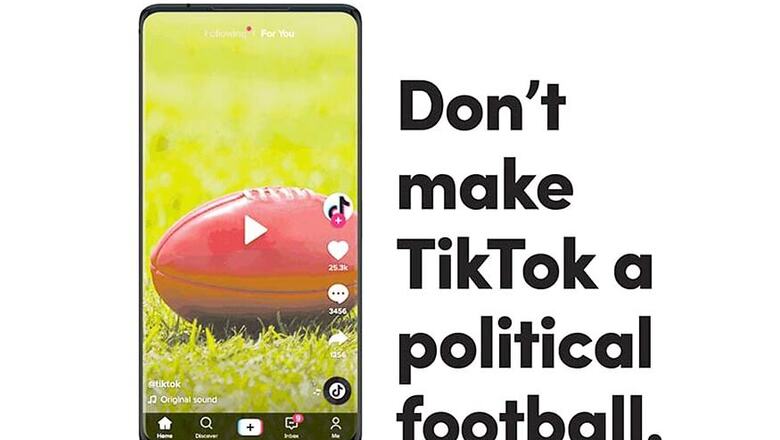
views
After facing backlash in India along with 58 other Chinese apps, TikTok is now trying to tackle the recent political pressure in Australia to ban its app over privacy concerns. The short-video platform recently opened an office in the country and has been scrutinised by the Australian government ever since.
As a response, TikTok has released a full-page advert in various Australian newspapers with the tagline “Don’t make TikTok a political football”. The ad also says “Millions of people have made TikTok one of Australia’s most loved apps. We’re safe. We’re fun. We’re independent.”
TikTok insists that it is a safe platform for users, “TikTok does not share information of our users in Australia with any foreign government, including the Chinese government, and would not do so if asked. We place the highest importance on user privacy and integrity. We always welcome the opportunity to meet with policymakers to talk about TikTok, including the steps we’re taking to make it an even safer and more creative place,” said TikTok Australia’s general manager Lee Hunter in a statement.
According to a report, TikTok has also written a letter to Australian MPs saying that it is caught between rising tensions between countries and calling the whole situation a “political football”.
The development seems to have happened after Prime Minister Scott Morrison recently said that his government was “having a good look” at TikTok. “If we consider there is a need to take further action than we are taking now, then I can tell you we won’t be shy about it,” Morrison told Melbourne radio station 3AW on Friday.
Separately, Labor Senator Jenny McAllister, the chairwoman of a parliamentary inquiry into foreign interference through social media, has identified TikTok as needing further scrutiny, noting 1.6 million young Australians used the app. “Some of these approaches to moderating content might be inconsistent with Australian values,” she told ABC radio. “For example, removing material about Tiananmen Square, or deprioritising material about Hong Kong protests,” she added, referring to student protests in Beijing in 1989 and pro-democracy protests in Hong Kong over the past year.



















Comments
0 comment